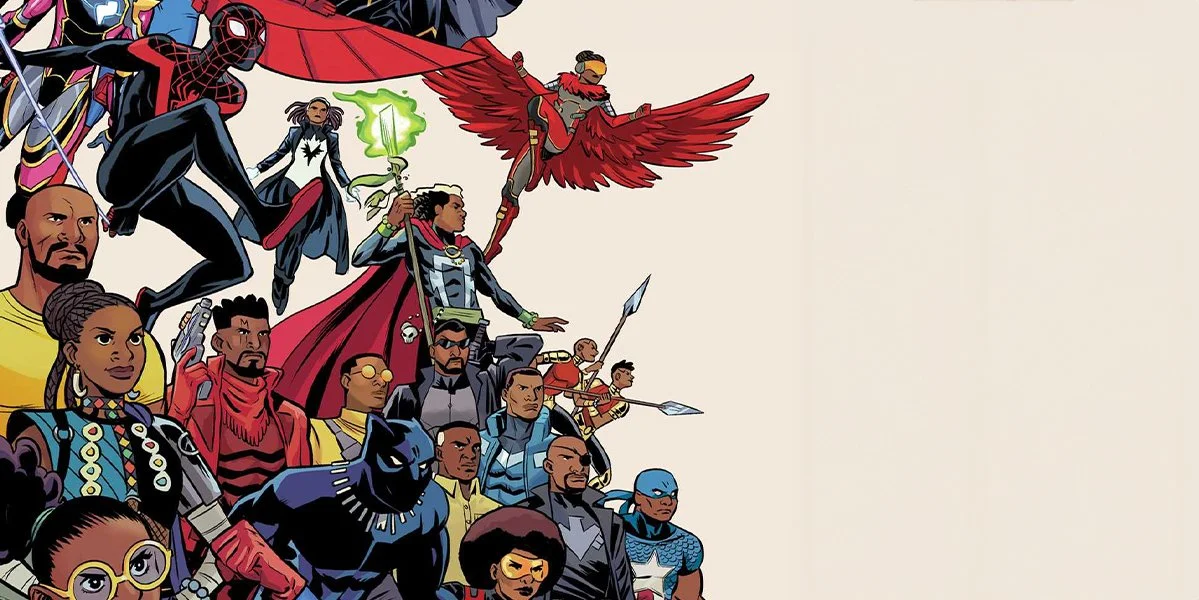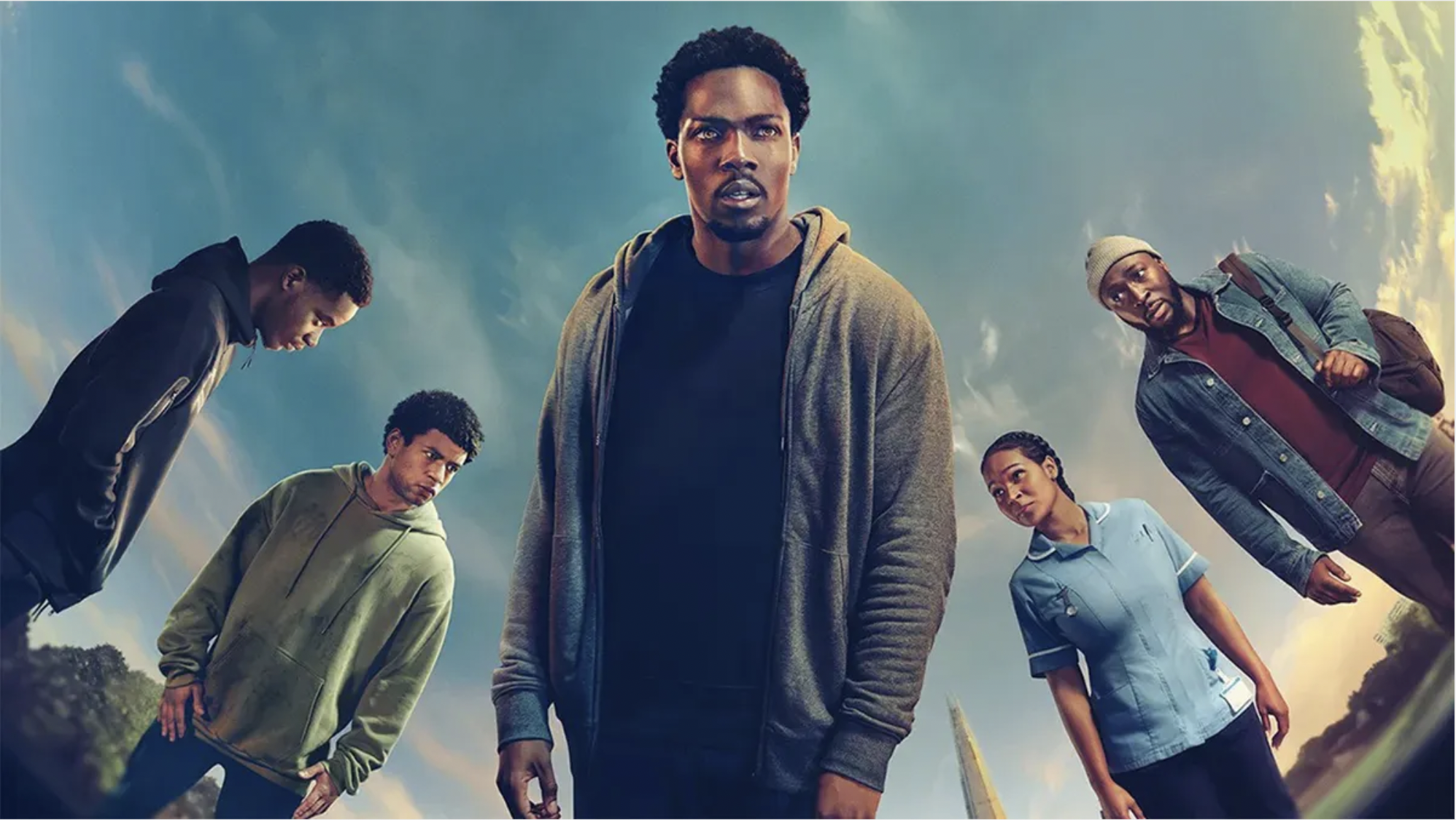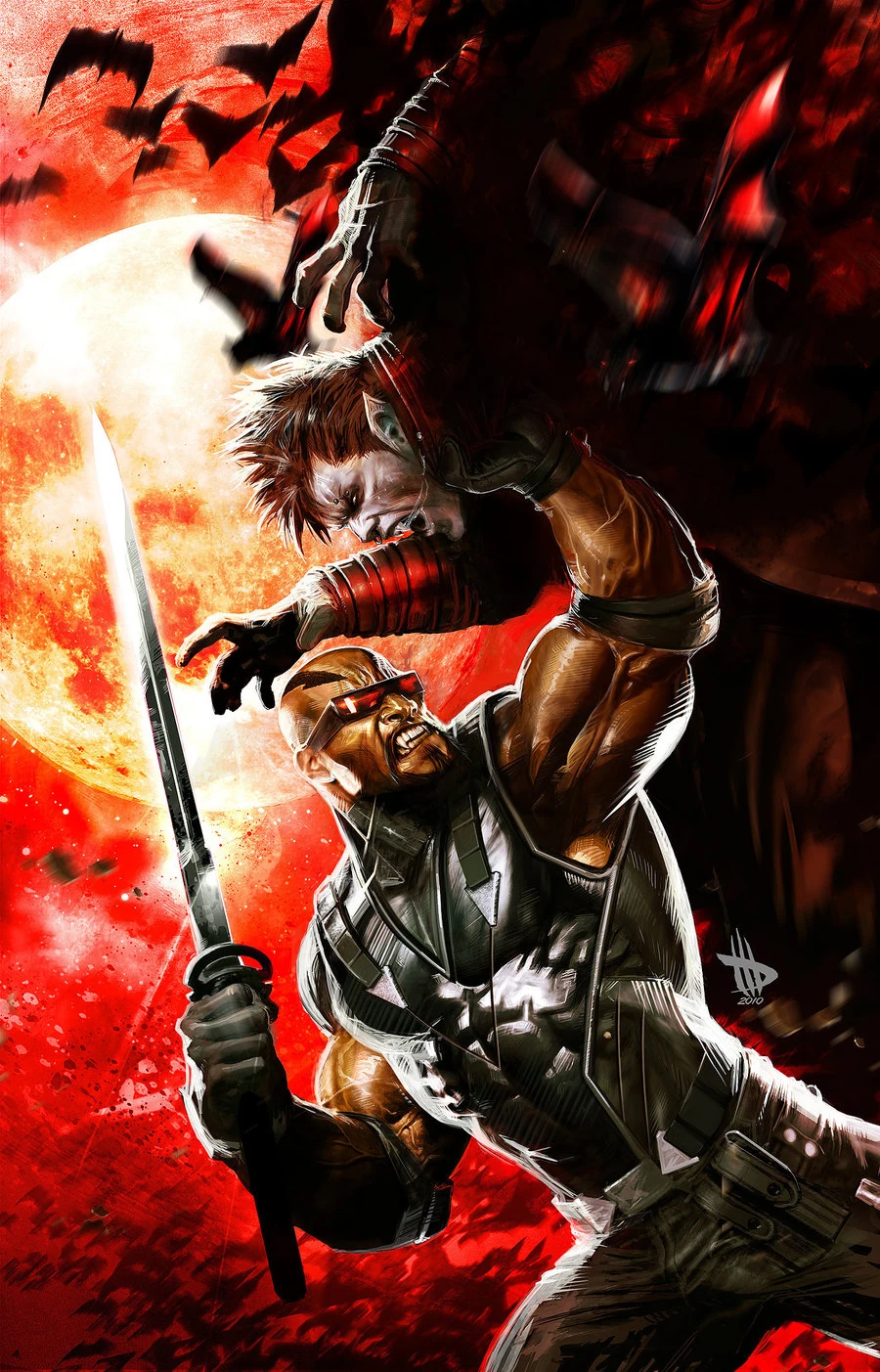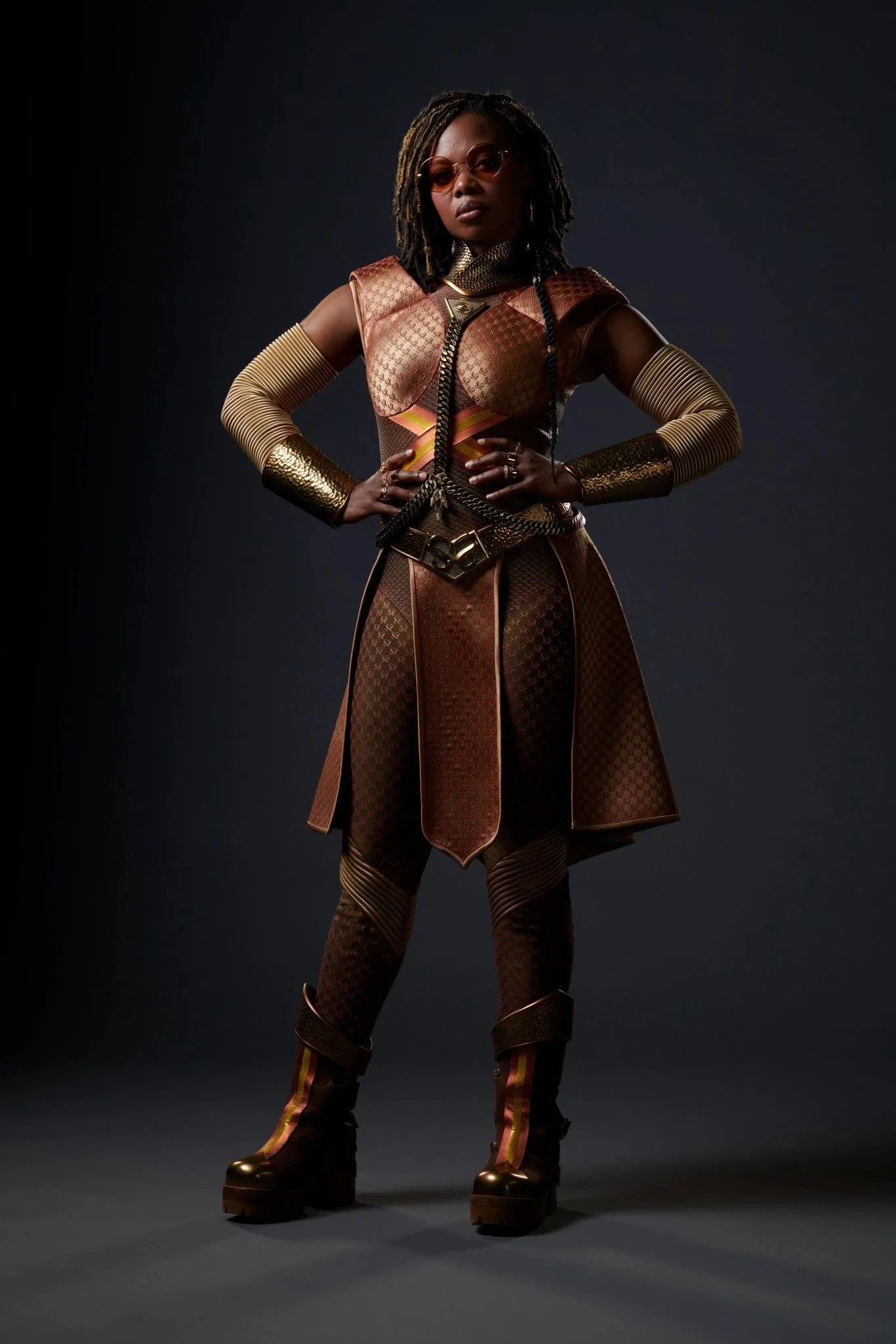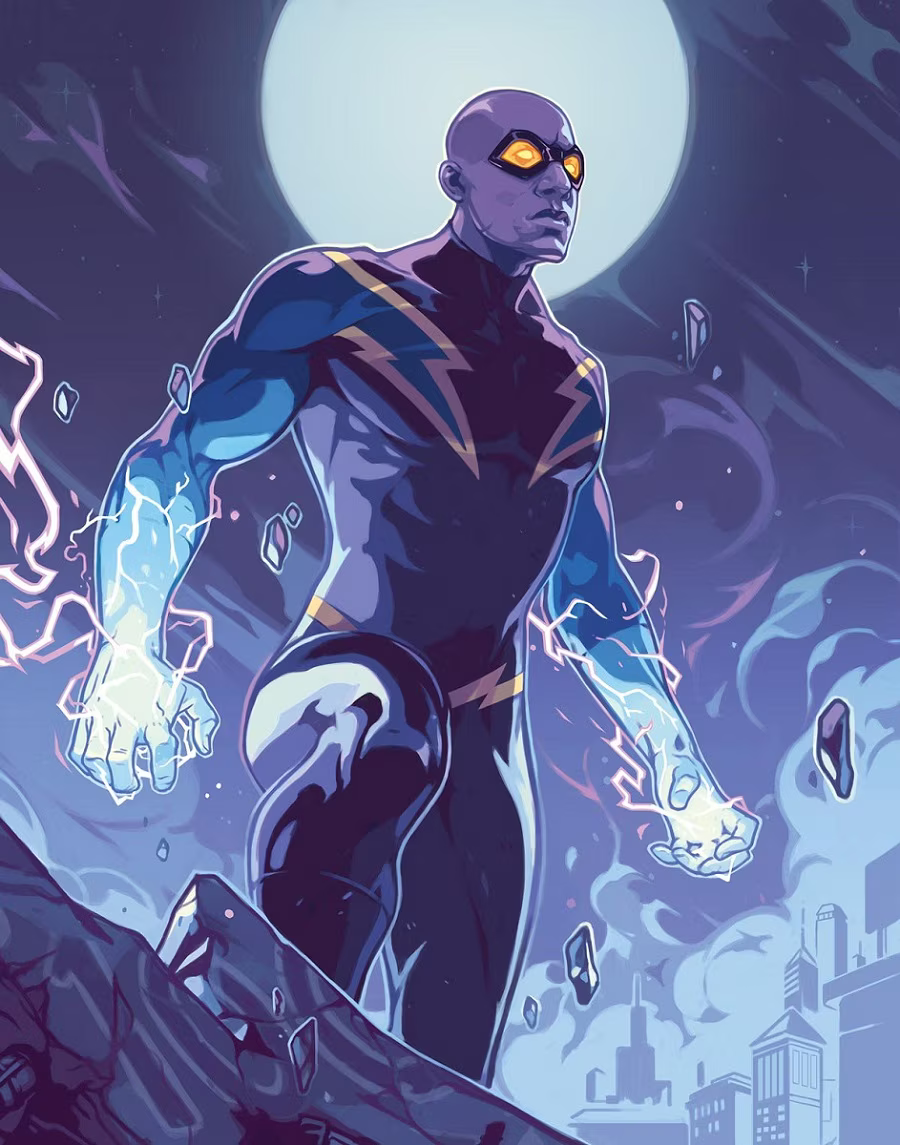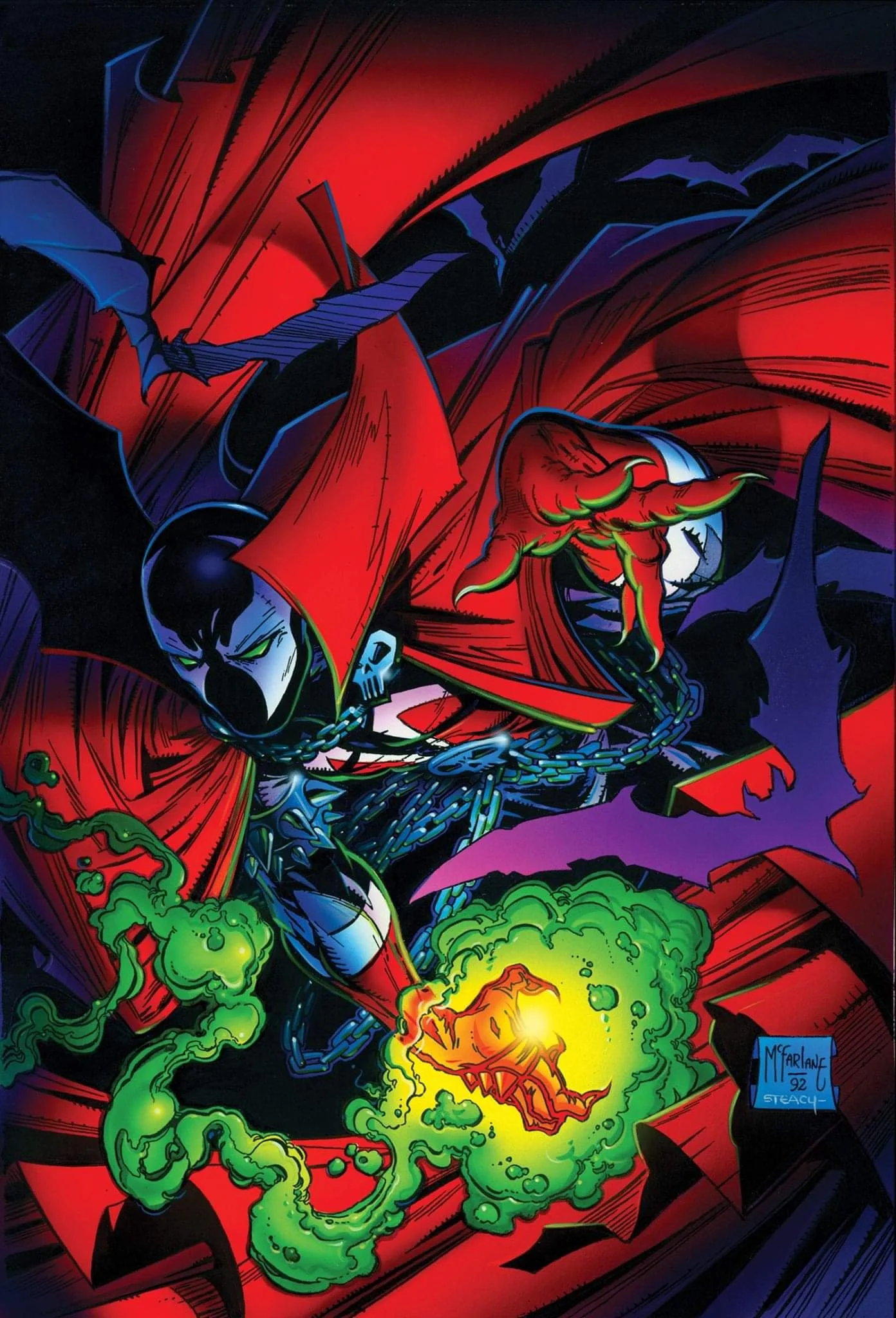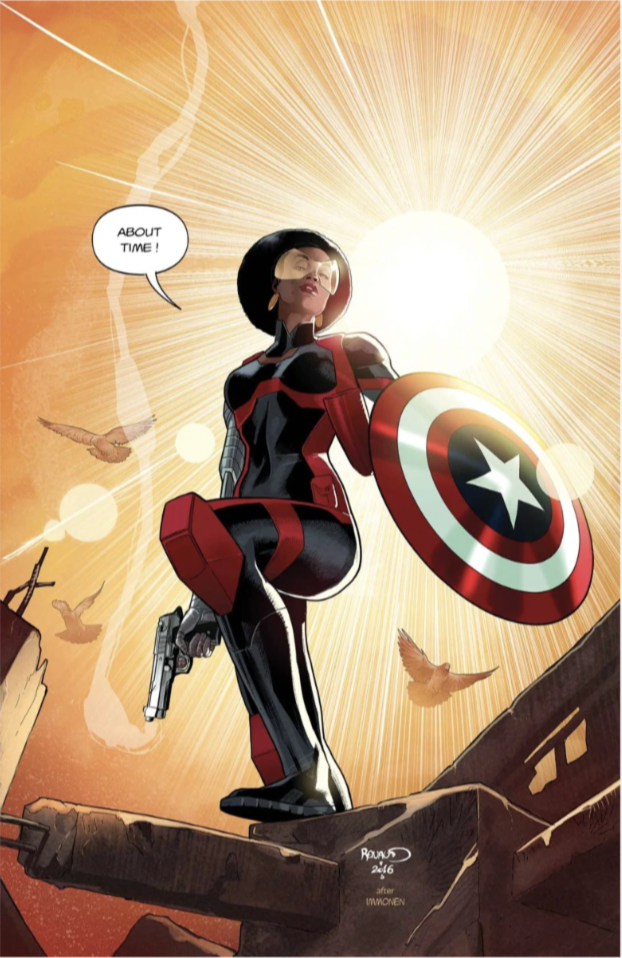From 'Supacell' to 'Spawn', Here's Our Ode to Black Superheroes
We're exploring the legacy of Black superheroes—from mainstream icons to overlooked gems in movies, TV, comics, and beyond—and celebrating the rise of new Black cape wielders reshaping the narrative.
Every kid has a dream. Often, child-like wonders are bound by the space-age, fantastical twists found in comic book media. Usually representing the epitome of human excellence, children frequently ponder careers of an astronaut, sailor, veterinarian... or the odd Power Ranger or Batman clone.
To wide-eyed kids, superheroes bridge the gap between our deepest desires and reality—brought to life through the power of pen and illustration on the pages of silver-age comic books. The captivating cinematography, bold dialogue on the big screen, and our streaming services today are gentle reminders of their enduring excellence.
Although heroes are depicted with fantastical, fictional candour, their stories profoundly impact by offering meaningful representation. Whether Iceman from the X-Men comics is portrayed as an openly gay man or Black Panther's 2018 movie debut making a billion dollars at the box office, these characters resonate deeply with diverse audiences—both kids and adults alike.
We see ourselves reflected in them, not just in their crystalline armour or superhuman abilities, but in the struggles they face—struggles that mirror our own. They are more than revered icons with superhuman strength like Captain America or the overwhelming martian power of Superman. Superheroes (can) inspire us. With a steadfast will like a lighthouse enduring the storm, superheroes endure the unfathomable. When Clark Kent intercepts a falling carriage full of innocent civilians in Smallville (2001), he ignites a flame of hope in us.
Some cape-clad stories delve deeper into societal issues, with Stan Lee's X-Men comics and their subsequent pantheon of Fox adaptations, springboarded by Bryan Singer's X-Men (2000) and X2 (2003) movies, serving as poignant allegories. These narratives reflect the struggles of the 1960s civil rights movement, with characters like Professor X and Magneto mirroring figures such as Martin Luther King Jr. and Malcolm X. Either accidentally or on purpose. Similarly, the depiction of discrimination in these stories, particularly in the excellent TV cartoon revival X-Men '97 (2024), is a powerful reflection of real-world issues such as LGBTQ+ and racial rights, resonating with current struggles for equality.
For centuries, Western society has imposed expectations on Black individuals and culture that surpass those placed on others—much like superheroes themselves. Today, we are witnessing a renewed appreciation for Black superheroes across various media.
The announcement of the hotly-anticipated King Spawn movie and Netflix's Supacell Season 2 highlights the continuing influence of Black comic book-adjacent characters. At the same time, Amazon Prime's TV adaption of The Boys has transformed Season 1 antagonist A-Train into a redeemed hero, adding depth to its portrayal of complex characters.
There's a third Miles Morales Spider-Verse movie on the horizon, and he's been flying off the shelves when it comes to the PlayStation 5 and his co-piloted series of Insomniac Spider-Man games. Equally, the forthcoming Ironheart and Wonder Man Disney Plus series' show promise, and the success of Supacell's first season showcases the growing demand for diverse narratives.
Blade's resurgence, spurred by summer blockbuster threequel Deadpool & Wolverine, brought Welsey Snipes' portrayal back into the spotlight after two decades of relegation (and maligned Hollywood red tape surrounding his Mahershala Ali MCU reboot movie). With the hall of Black heroes seemingly in good hands, it's time for our ode to the Black superhero, both past and present.
the Dawn of a New Age?
Representation in the world of Black imagination is ever-expanding. With eyes that glow like a midnight sun, superspeed akin to The Flash, indomitable strength like the Hulk, and the power to stop a speeding bullet with a mere flick of the hand, a new league of superheroes has emerged.
Supacell bears threads of the incredible DC Comics cartoon Static Shock from 2000, and the 2009 E4 series Misfits, but it is reimagined within the context of Black British life and culture. The show explores the lives of five seemingly ordinary Black South Londoners, each with a family history of sickle cell disease. In moments of deep distress, these individuals awaken dormant supernatural powers and must navigate their abilities alongside everyday life.
Unlike American counterparts, there are few significant supernatural Black British figures. Supacell brims with originality, intertwining fantasy with reality as it depicts self-absorbed superhumans preoccupied with their tribulations rather than the clichéd trope of saving the world.
From sickle cell to Supacell, Rapman reveals in an interview how he has transformed a source of Black pain into something uplifting. He envisioned a condition that "can hurt you but means your children will be extraordinary." By spotlighting a condition predominantly affecting the Black community and conceptualising a supernatural phenomenon that empowers them, Supacell truly honours Black British culture. It showcases Black Caribbean and African music, traditional cuisines, and vibrant dance moves.
Classic UK rap tunes like "Talkin da Hardest" by Giggs and Afrobeat, Amapiano, and dancehall music pepper the scene for authentic London parties. Rapman's show emphasises the importance of genuine Black cultural representation and experiences, featuring locations like Deptford, Peckham, Bermondsey, and Thamesmead, where he grew up.
Supacell also reminds us that powered folk aren't always straightforward; they can also be complex antiheroes. This variety of character types enriches the genre, but not all portrayals are well-received by fans. Just because characters gain superhuman abilities doesn't mean they become heroes—instead, they might turn into antagonists.
The gore-infested world of the aforementioned The Boys (2019-present) has recently come under scrutiny. Some viewers are concerned about the "woke" agenda surrounding the representation of Black characters, such as Black Noir, A-Train, and more recently, Sister Sage. There is disappointment in how the show has handled Sister Sage. Rather than inspiring and uplifting her community, she aids the self-serving and bigoted Homelander. Sister Sage's actions seem to undermine the potential for a positive impact on a character touted as the most intelligent being on Earth. While increasing Black representation is essential, the way these stories are told—and the messages they convey—matter just as much.
“Black superhero stories are vital for representation and showcasing Black culture. They are especially important for the fearless five-year-old Black child who dreams of soaring over cities like Falcon or saving lives with the agility of T’Challa.”
In a world rampant with racist rhetoric and subtle undertones etched into the fabric of society, it is essential to bring awareness to stories that uplift, encourage and elevate the collective Black consciousness.
Let's celebrate the legacy and impact of Black comic book characters, both past and present. While many iconic Black superheroes have yet to be fully recognised through film and television—their contributions to the genre are undeniable. These characters have inspired generations, even if they haven't always received the spotlight they deserve. As we honour the heroes we know and love, let's also shine a light on those whose stories have yet to be widely discovered, ensuring that their legacies continue to grow and inspire.
Lion Man / All-Negro Comics (1947)
Powers + Abilities:
Super strength, intelligence, agility and stamina.
Before the much acclaimed, beloved Black Panther, who is widely recognised as the first-ever Black superhero, there was The Lion Man aka The Lion of the Jungle. Created by Black journalist Orrin Cromwell Evans in 1947, The Lion Man was the first ever Black superhero in American comics. Evans was a news writer for Philadelphia Records (which was an all-white publication) and was determined to create a space for telling Black stories. Evans wanted a space in which the Black imagination could flourish, humorous or serious Black experience would be revitalised through Evans' publication. Evans co-founded All-Negro Comics alongside editors Harry T. Saylor and Bill Driscol.
The Lion Man very likely inspired Black Panther—The Lion Man is a scientist tasked by the United Nations with monitoring a dangerous amount of uranium in a magical mountainous region on the Gold Coast of Africa. This mission somewhat echoes the role of the Black Panther in protecting the highly coveted vibranium within the nation of Wakanda. Unfortunately, there was only ever one issue of the magazine due to issues of racism preventing further publication.
Blade / Marvel Comics (1973)
Powers + Abilities:
Superhuman strength and stamina, hypersensitivity, accelerated healing, half-vampire—impervious to vampire bites and sunlight.
Sister Sage / Amazon Prime's The Boys (2024)
Powers + Abilities:
Superhuman intelligence.
Nubia / DC Comics (1973)
Powers + Abilities:
Superhuman strength, immortality, flight, magic and magic sword wielder.
Black Lightning / Dc Comics (1977)
Powers + Abilities:
Superhuman strength, speed and durability, telekinesis, hand-to-hand combat, intelligence, electrokinesis–force field, electro blast, electrical healing, electricity detection and magnokinesis.
Spawn / Image Comics (1992)
Power + Abilities:
Superhuman strength, durability, transmutation, shapeshifting, regenerative healing, teleportation, flight, telekinesis, intangibility, manipulation of time, reality and matter, precognition, healing powers, empathy and life force absorption.
Luke Cage / Marvel Comics (1972)
Powers + Abilities:
Bulletproof skin, superhuman strength, hand-to-hand combat and accelerated healing.
Michael Lasaki / Netflix's SupacelL (2024)
Powers + Abilities:
Teleportation, time travel and time manipulation.
Storm / Marvel Comics (1975)
Powers + Abilities:
Manipulation of weather and energy—she can induce and control storms, lightning, ocean currents, and electromagnetic fields, speed, intelligence, durability, flight, strength and telepathic resistance.
Misty Knight / Marvel Comics (1975)
Powers + Abilities:
Super strength from her bionic arm, martial arts and hand-to-hand combat.
Miles Morales, the Ultimate Spider-Man /Marvel Comics (2011)
Power + Abilities:
Superhuman strength, speed, reflexes and durability, hypersensitivity “spider-senses”, venom blasts, wallcrawling and shooting webs.
Predating film favourites Blade (1998) and the Academy Award-winning Black Panther, the cursed revenant Spawn made it to the silver screen in 1997. Aesthetics may have been primitive and unconvincing but the film paved the way for Black superhero stories to claim their place outside of the comic book universe and into the world of theatre.
From powerful Black female heroines like Storm to Netflix series such as Luke Cage (2016) and Black Lightning (2018) to the wonderfully animated Spider-Man (2018) movies exploring the story of young Black high school student Miles Morales and his adventures in the Spider-Verse, Black superheroes are diversifying the face of human excellence. The face of the superhero. We are itching for more as whispers of a reboot of Blade are on the horizon and highly-anticipated Spider-Man: Beyond the Multi-Verse is in the works.
Black heroic stories tell young Black children that they are more than just "second-class citizens" or the children of supposedly "undeserving, unqualified" immigrants. These stories dispel the harmful discourses that subconsciously tell Black children they are lesser than other races. Most importantly, adventurous, fantastical Black stories tell Black children that they are special. They are Black kings and queens—trailblazers and superheroes in their own right.


